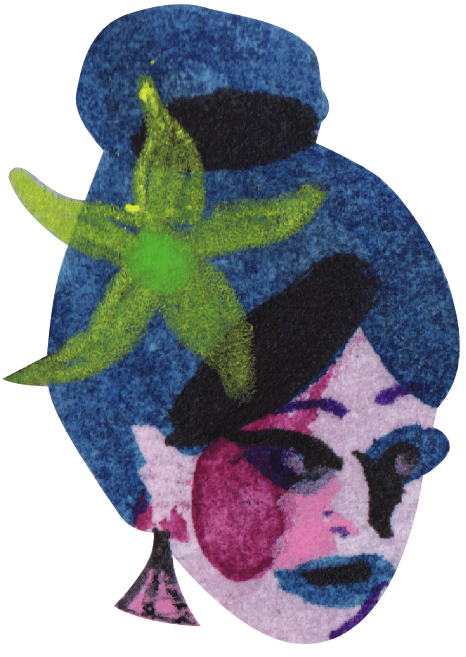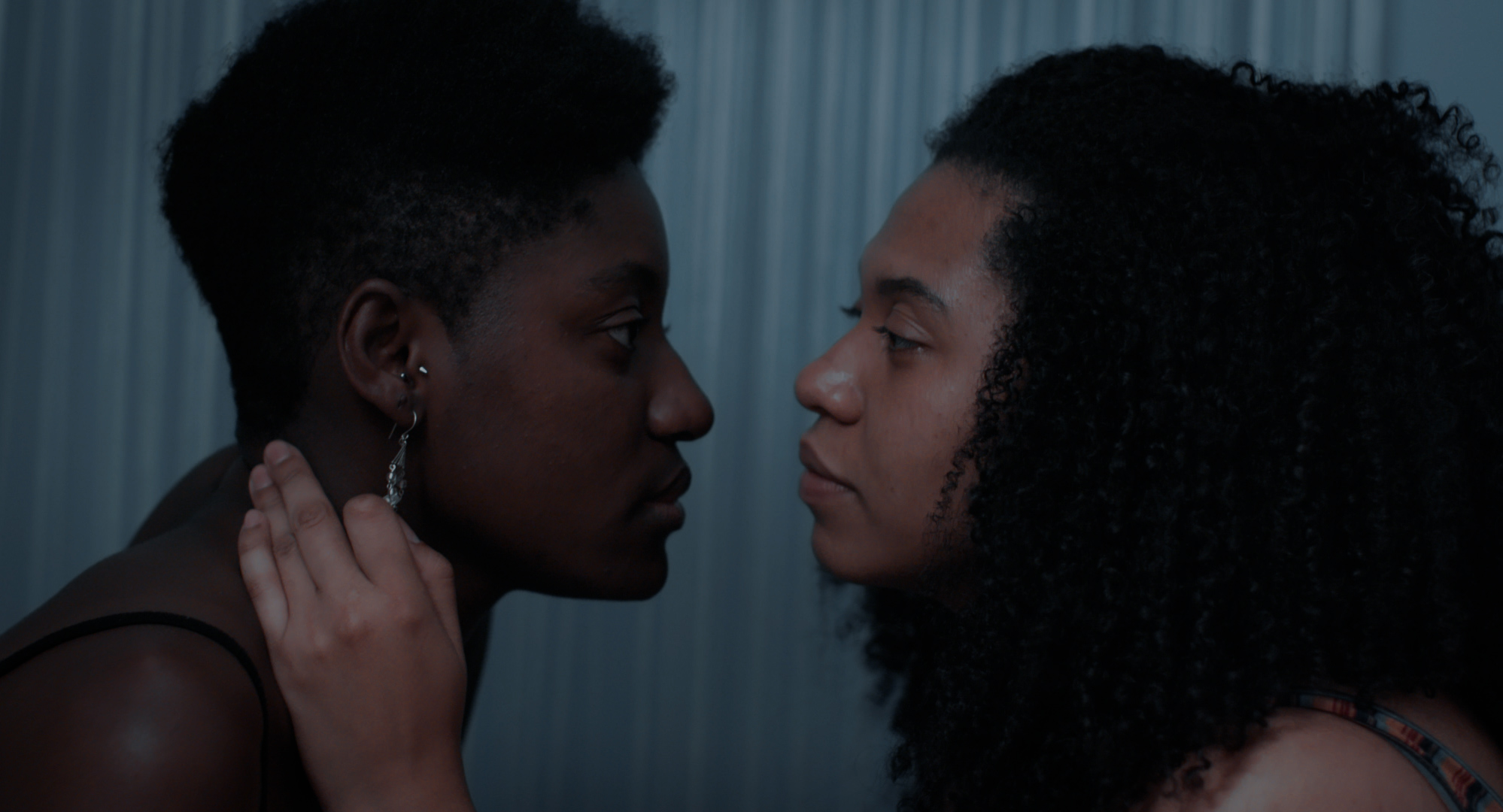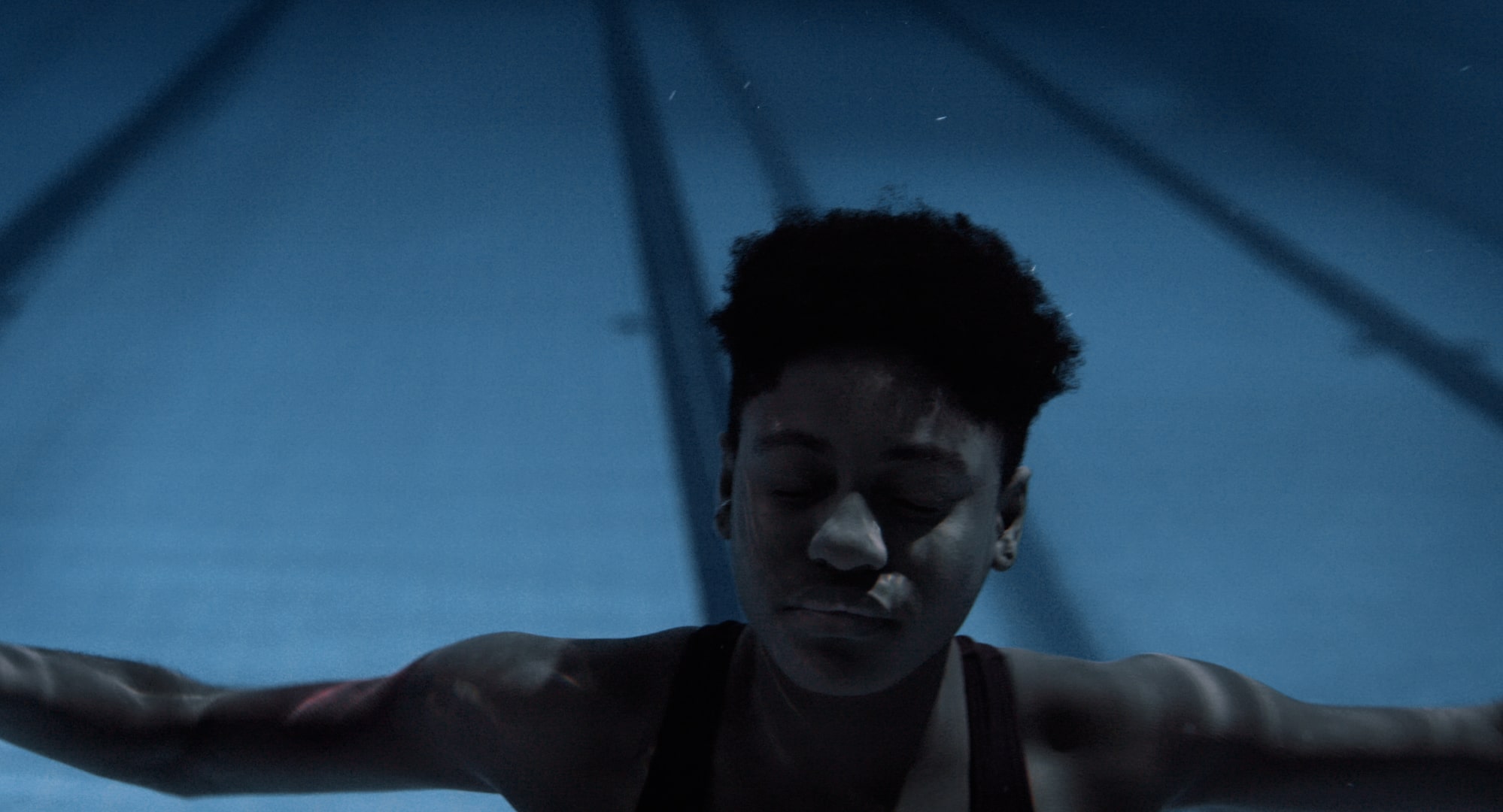Breakfast avec Como respirar fora d’água (Comment respirer hors de l’eau)
Entretien avec Victoria Negreiros Guedes et Júlia Dordetti Fávero, réalisatrices de Como respirar fora d’água (Comment respirer hors de l’eau)

Nous devions écrire en peu de temps un court métrage pour un projet et il nous tenait à cœur d’aborder des thèmes qui nous parlaient. Et comme presque toutes les membres de notre équipe avaient en commun le fait de se définir comme lesbiennes (j’appellerais ça le « lesbian gaze »), nous avons assumé cette identité et décidé de faire un film lesbien. Nous avons commencé à discuter de ce que cela pouvait signifier de réaliser un film lesbien au Brésil et nos échanges ont débouché sur des approches croisées pour notre projet. Dans notre pays, il est impossible d’évoquer les identités sexuelles sans les lier aux expériences raciales et sociales. Par la suite, cette question est devenue la colonne vertébrale de notre scénario. En 2018, lorsque Jair Bolsonaro a été élu président de la République, son discours empreint de violence contre les minorités a été légitimé et il est devenu de plus en plus évident que ces groupes courraient un danger croissant. Pour écrire le scénario, nous nous sommes inspirées d’observations personnelles que Victoria, une des réalisatrices, avait tirées de son expérience. Dans sa famille, les hommes noirs qui travaillent pour les forces de l’ordre et elle-même, en tant que personne queer et noire, sont vulnérables à de nombreux points de vue et peuvent subir des violences dans la rue. Et malgré cela, ils vivent en famille en harmonie.


Dès le début du projet, il a été question d’aborder les relations familiales. Nous avions cette volonté d’explorer comment les liens familiaux peuvent être des raccourcis, mais aussi des déviations lorsque l’on cherche à apprendre à aborder la vie. En parallèle, nous souhaitions créer une représentation complexe de ces identités qui sont habituellement considérées comme des typologies sociales (le policier, le père, la fille, la lesbienne) et aller au-delà de ces représentations communes. Avec cette approche, l’objectif était d’explorer les similitudes entre ces deux personnages, la vulnérabilité et l’affection, et bien sûr, comment ils surmontent leur subjectivité pour gérer les relations contradictoires au sein et en dehors de leur foyer.

Nous espérons contribuer à complexifier les discussions au sujet de la police brésilienne et de la jeunesse noire et LGBTQIA+ en apportant un peu de sensibilité au débat pour qu’elles soient représentées.

Communiquer en permanence pour co-réaliser ce film a représenté un défi majeur. Mais d’un autre côté, partager ce poste avec une autre personne a été un avantage pour la construction du film. Nous avons échangé à chaque étape et cela a contribué à la cohésion de la forme et du discours de ce court métrage. Sans oublier qu’à deux, nous avons eu davantage d’idées, de références et d’alternatives pour surmonter les difficultés.


Victoria – Je dirais Feu Inextinguible, réalisé par Harun Farocki et sorti en 1969. C’est le film qui me vient à l’esprit quand je pense à la représentation des faits de violence au cinéma. Harun Farocki propose une jolie réflexion sur la puissance des images dans la représentation de la violence.
Julia – Un court métrage brésilien sorti en 2019, Quebramar, réalisé par Cris Lyra, une jeune lesbienne, m’a beaucoup impressionné par sa simplicité et sa puissance narrative. Il s’agit d’un joli portrait documentaire d’un groupe d’amies lesbiennes qui nouent des liens et se soutiennent pendant un voyage à la plage, alors qu’elles doivent aussi faire face à des souvenirs traumatisants et des violences policières. Leurs échanges révèlent beaucoup de choses sur la jeunesse brésilienne et LGBT.

C’est une question complexe, car un bon film ne suit aucune règle particulière. Cela étant dit, on pourrait dire qu’un bon film est un film qui nous rapproche d’un certain point de vue même si le contexte nous est étranger. C’est aussi un film qui provoque en nous une certaine impression qui nous fait nous sentir différents une fois la séance finie. Après tout, regarder un film revient à emprunter les yeux et les oreilles de quelqu’un, à découvrir le monde d’un étranger ou un nouveau point de vue sur le monde que nous pensions déjà connaître.
Pour voir Como respirar fora d’água(Comment respirer hors de l’eau), rendez-vous aux séances de la compétition internationale I9.








